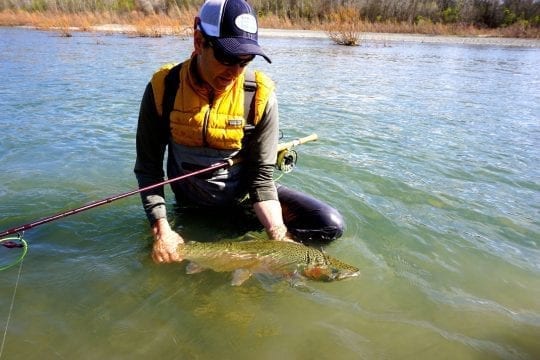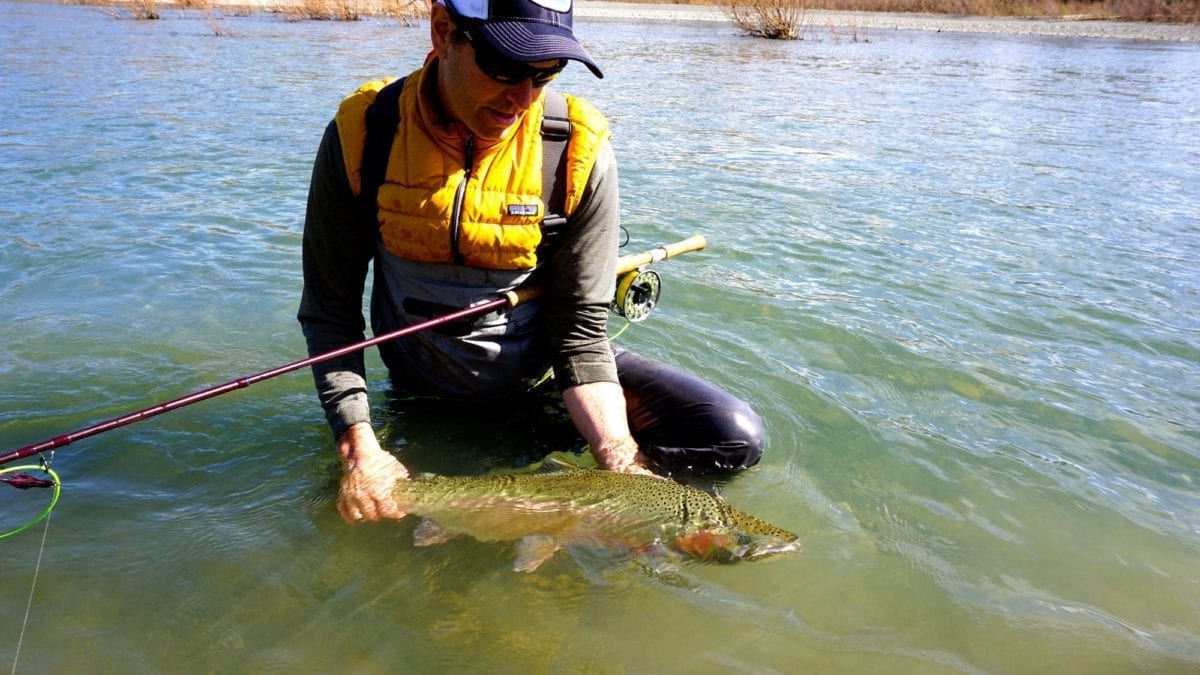Wednesday’s Wild and Wet Winter – Week 5
It’s Wednesday’s Wild and Wet Winter … a CalTrout, Keepemwet Fishing, and Lost Coast Outfitters initiative celebrating California’s wild winter steelhead.

A case can be made that California’s Eel River represents the best opportunity for large-scale wild winter steelhead (and Chinook salmon) recovery on the entire west coast. Once home to an annual return of 1,000,000 wild steelhead and salmon, today a return of 25,000 is considered a banner year with most recent years tallying considerably less. The Eel is a massive watershed with outstanding habitat and one of the few west coast watersheds with no hatchery threatening wild fish genetics. Projects focused on improving estuary habitat, removing numerous fish passage, and addressing large-scale dam removal will take many years, if not decades, and countless millions of dollars…all daunting but achievable.
To learn more about CalTrout’s Eel River efforts within this stakeholder group see their recent film “Return to Abundance”.
Anglers overall are a pretty generous group offering both voices in advocacy and financial support to the many conservation organizations fighting the good fight.
One could argue that as long-term conservation efforts play out, the most immediate and meaningful impact conservation-minded anglers can have on wild fish recovery is to simply handle fish carefully and respectfully.
Keeping fish in the water and eliminating air exposure, not only will help minimize mortality, but limit any potential secondary impacts on spawning effectiveness and fry production. Everything we do today to benefit and protect wild fish can only help future wild fish recovery efforts.
————————————————————————————————————
CalTrout: to learn more about California winter run steelhead
Keepemwet Fishing: to learn more about Keepemwet principles
Lost Coast Outfitters: blog on many things fly fishing related





